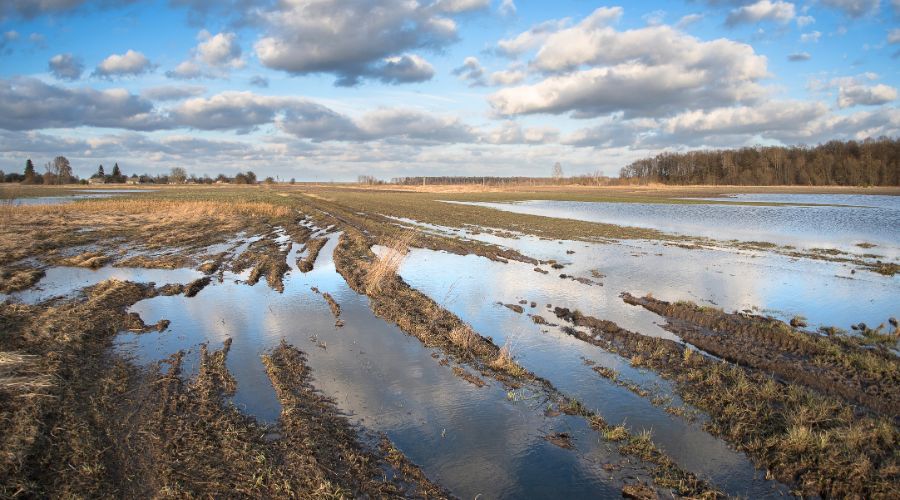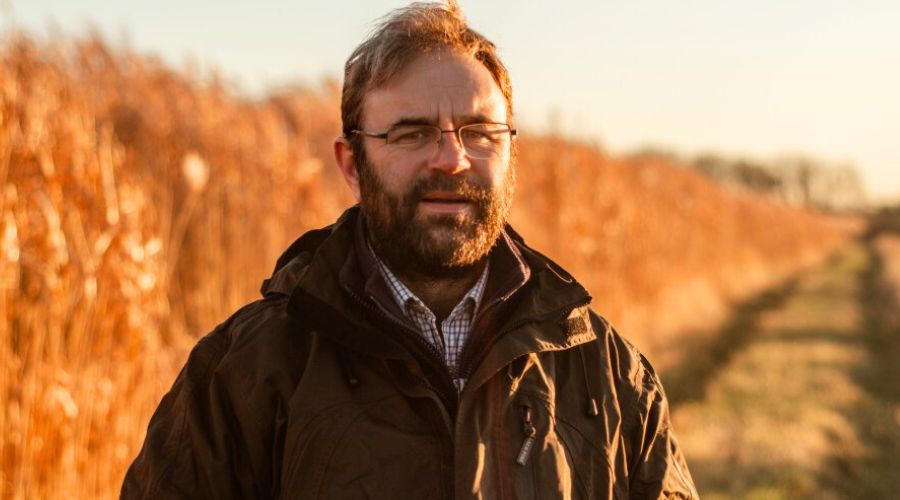Record-breaking number of flood warnings issued in England last winter
25th July 2024
The number of flood warnings on England’s best farmland last winter hit a record high, exceeding the previous record by 20%.

A total of 1,008 flood warnings were issued by the Environment Agency for grade 1 and 2 farmland, the most productive land, up from a previous high of 775 during the winter of 2019-2020.
Flood warnings indicate that flooding is ‘expected’ in an area.
3,344 flood alerts were also issued, indicating that flooding is ‘possible’. This again is an all-time high, smashing the previous winter record of 2808 set in 2019/20.
Many farmers also struggled with waterlogged fields and failed to get crops established.
The Energy and Climate Intelligence Unit said that the combination of unprecedented flood risk and the sheer volume of rain saturating soils may have reduced this year’s harvest by up to a fifth, knocking nearly a billion pounds off arable farm revenues.
Worst winter
Recent polling for ECIU by More in Common suggested that farmers felt extreme weather would be the biggest threat to food security in the next ten years, with 46% of farmers identifying this as an issue.
60% of those farmers polled flagged that climate change will have a negative impact on their business, and 72% of farmers were worried about climate change.

Colin Chappell, a farmer from Lincolnshire whose farm was hit by two flood warnings and nine flood alerts last winter said: “The winter we’ve just been through was the worst I can remember, and fills me with dread for what climate change might mean for my business and our industry.
“On our farm, we’ve struggled to get crops in the ground, with fields flooded and soils saturated.
“Climate change is hitting farmers like me here and now, and affecting our best farmland more than most. For the sake of our food security, we need to get a handle on our emissions before it’s too late while also creating a joined-up system of land management to make farming more resilient.”
Extreme weather
Tom Lancaster, land food and farming analyst at ECIU, added: “Farmers have been hit hard by extreme weather linked to climate change last winter, and it’s clear now that climate change presents a systemic risk to our best farmland, and therefore our food security.
“With much of England’s best farmland low lying and in flood plains, the increasing likelihood of extreme weather that climate change brings presents an outsized risk for UK food production.
“The good news is the government’s green farming schemes can help farmers become more resilient to these impacts, by improving soil health and planting trees to slow flood waters, but further support will be needed to help farmers adapt.
“Fundamentally though, moving faster to net zero emissions is the only way to stop these risks from escalating.”
Read more arable news.
